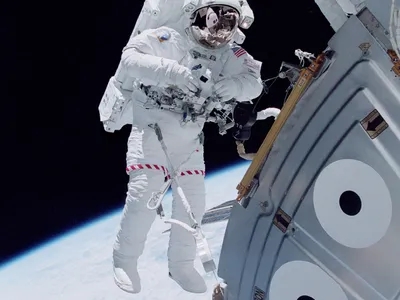Discover a world of possibilities beyond satellite communication in the developing world and Pakistan. Explore professional opportunities in space exploration, earth observation, space tourism, and space mining. Students from Pakistan and other developing countries can seize these opportunities for a promising career path.
1. Space Exploration: Unlocking New Frontiers for Education and Development
Space exploration has always captured the imagination of humanity. From the early days of gazing at the stars to the modern era of robotic rovers on distant planets, the quest to understand the universe has led to remarkable scientific discoveries and technological advancements. Today, space exploration goes beyond curiosity-driven endeavours, with practical applications that benefit our everyday lives. In this section, we will delve into the significance of space exploration in various fields, including education and development opportunities offered by different countries.
Importance of Space Exploration
Scientific Discoveries
Space exploration has been instrumental in expanding our knowledge of the universe and uncovering its mysteries. Through space missions and telescopic observations, scientists have made groundbreaking discoveries about celestial bodies, the origins of the universe, and the fundamental laws of physics. These scientific breakthroughs not only deepen our understanding of the cosmos but also have implications for technology and innovation here on Earth.
Technological Innovations
The pursuit of space exploration has spurred significant technological advancements that have practical applications in various industries. Materials science, for instance, has benefitted from the development of lightweight and durable materials designed for space missions. These materials find use in sectors such as aviation, automotive, and construction, enhancing the performance and efficiency of everyday products and infrastructure.
Robotics is another area that has seen remarkable progress through space exploration. Robotic probes and rovers sent to other planets have revolutionized our understanding of their geology, atmosphere, and potential for supporting life. The advancements in robotics have found applications in industries like manufacturing, healthcare, and disaster response, where robotic systems improve efficiency, safety, and precision.
Education and Scholarships for Space Exploration
The field of space exploration offers exciting educational opportunities for aspiring scientists, engineers, and researchers. Several countries around the world provide specialized programs and degrees in subjects like aerospace engineering, astrophysics, and planetary science. These educational programs equip students with the knowledge and skills necessary to contribute to space exploration and related industries.
Countries such as the United States, United Kingdom, Germany and France have renowned institutions and universities that offer a comprehensive education in space-related disciplines. These programs cover a wide range of topics, including spacecraft design, orbital mechanics, astrophysical observations, and mission planning. Students enrolled in these programs gain hands-on experience through practical projects and research opportunities, preparing them for careers in space exploration.
2. Insights with Earth Observation: Satellite Technology Revolutionizing Decision-Making
Satellites equipped with advanced sensors and cameras play a crucial role in Earth observation. They orbit the planet, collecting valuable data that can inform decision-making processes in various sectors. Earth observation satellites provide insights into climate change, deforestation, urbanization, and natural disasters, among other phenomena. This information is vital for policymakers, scientists, and industries to develop strategies and solutions to address pressing environmental and societal challenges.
Education and Scholarships for Earth Observation
Just like space exploration, Earth observation offers educational and scholarship opportunities for individuals interested in studying and contributing to this field. Countries that prioritize Earth observation have established specialized programs and institutes that focus on remote sensing, geospatial analysis, and environmental monitoring.
Countries such as Canada, Australia, Japan, and India have renowned institutions that offer a comprehensive education in Earth observation and related disciplines. These programs provide students with a solid understanding of satellite imagery analysis, geospatial technologies, and data interpretation. Graduates from these programs can pursue careers in environmental management, disaster response, urban planning, and agriculture, among others.
To support talented individuals in this field, various scholarships and grants are offered. Organizations like the European Space Agency, the National Aeronautics and Space Administration, and the United Nations offer scholarships and funding opportunities for students interested in Earth observation. These programs aim to nurture a new generation of experts who can leverage satellite data for sustainable development and environmental stewardship.
3. The Potential of Space Tourism for Education, Inspiration, and Economic Growth
While still in its early stages, space tourism holds immense potential for education, inspiration, and economic growth. Commercial space travel ventures like Virgin Galactic and Blue Origin are making strides in developing spacecraft that can transport tourists to the edge of space and beyond. This emerging industry opens up new possibilities for experiencing space firsthand and igniting interest in science, technology, engineering, and mathematics (STEM) fields.
Potential Benefits of Space Tourism
Space tourism has the power to inspire individuals and capture their imagination. It offers a unique perspective of our planet, fostering a sense of awe and appreciation for the Earth’s beauty and fragility. By witnessing the vastness of space and the thin atmosphere that protects life on our planet, space tourists can develop a deeper understanding of the need for environmental conservation and sustainable practices.
Educational Opportunities
Space tourism also presents unparalleled educational opportunities. Imagine a future where students can participate in space camps and immersive training experiences, gaining hands-on knowledge about spaceflight, astronomy, and life in space. These educational programs could spark interest in STEM fields and encourage young minds to pursue careers in space exploration and related industries.
Inspiration and Innovation
The advent of space tourism has the potential to fuel innovation in various sectors. As more people experience space travel, new technologies and services will be developed to enhance the safety, comfort, and overall experience of space tourism. This drive for innovation can lead to spin-off technologies that find applications in sectors such as transportation, communications, and healthcare, benefiting society as a whole.
Revenue Generation
Beyond the educational and inspirational aspects, space tourism has the potential to generate significant revenue for the space industry. As the industry matures, it is expected to attract a growing number of tourists who are willing to pay for the unique experience of space travel. This revenue can be reinvested in further space exploration, research, and technological advancements, driving the industry forward and creating new opportunities for economic growth.
Education and Scholarships for Space Tourism
With the rise of space tourism, educational programs are emerging to cater to the growing interest in this field. Countries at the forefront of space tourism initiatives, such as the United States (NASA), are developing specialized programs and training centres to educate individuals about the intricacies of space travel and its associated technologies.
Moreover, scholarships and funding opportunities are being established to support aspiring space tourism professionals. These scholarships aim to encourage research and innovation in the field, fostering the development of safe, sustainable, and accessible space tourism. Organizations like the Space Tourism Society and private space companies offer scholarships and grants to students interested in studying space tourism and contributing to its growth.
4. The Potential of Space Mining for Economic Growth and Resource Sustainability
The idea of space mining involves the exploration and exploitation of resources in space, such as water, minerals, and metals. While still a futuristic concept, space mining holds the potential for economic growth and resource sustainability.
Exploration and Exploitation of Space Resources
Space mining envisions extracting valuable resources from celestial bodies like asteroids and the Moon. These resources could be used to sustain future space missions, establish extraterrestrial habitats, and provide raw materials for manufacturing. Water, in particular, is of great interest as it can be broken down into hydrogen and oxygen for rocket propellant and life support systems.
The exploration and mapping of potential resource-rich locations in space are ongoing efforts. Robotic missions are being planned to survey and analyze asteroids and lunar surfaces, assessing their composition and feasibility for mining operations.
Economic Opportunities
Space mining has the potential to revolutionize our approach to resource extraction and open up new economic opportunities. By harnessing space resources, countries can reduce their reliance on Earth-bound reserves and establish sustainable resource utilization practices. The development of space mining technologies and infrastructure can spur economic growth, create jobs, and stimulate innovation in sectors related to space exploration, such as robotics, materials science, and resource management.
Education and Scholarships for Space Mining
As the concept of space mining gains traction, educational programs and research opportunities are emerging to prepare future professionals in this field. Countries with active space exploration and mining initiatives, including the United States, Luxembourg, and China, are investing in educational infrastructure and curriculum development for space mining.
Universities and institutions are offering specialized programs that cover subjects such as asteroid science, space resource utilization, and space engineering. These programs equip students with the knowledge and skills needed to contribute to space mining projects and related research.
Scholarships and grants specific to space mining are also being established to support talented individuals interested in this field. These funding opportunities aim to foster innovation and collaboration in space mining technologies, extraction methods, and sustainability practices.
Empowering Minds through Space Education: UNOOSA’s Endeavors in Promoting Interdisciplinary Learning and Global Collaboration
The United Nations Office for Outer Space Affairs (UNOOSA) recognizes the numerous benefits of space education and its profound impact on society. Through their dedicated efforts, UNOOSA promotes the utilization of space as a tool for education and capacity-building worldwide.
Space education offers a unique platform for students and educators to engage in interdisciplinary learning and foster a deeper understanding of science, technology, engineering, and mathematics (STEM) subjects. By integrating space-related topics into educational curricula, students gain valuable insights into space science, satellite technology, and the exploration of celestial bodies.
UNOOSA collaborates with various organizations and institutions to develop space education programs and initiatives. These programs aim to inspire and nurture the next generation of scientists, engineers, and space professionals. By promoting access to space education, UNOOSA ensures that students from all backgrounds, particularly in developing countries, have the opportunity to participate in the exciting field of space exploration.
One of the key objectives of space education is to enhance capacity-building in space science and technology. Through training workshops, seminars, and online resources, UNOOSA empowers educators with the knowledge and tools necessary to incorporate space-related topics into their teaching methodologies. By equipping educators with the necessary skills, UNOOSA strengthens the foundation for sustainable development in space science and technology.
Moreover, space education catalyzes innovation and fosters cross-cultural collaboration. By engaging in joint projects and international space education programs, students from different countries can exchange ideas, share experiences, and work together towards common goals. These collaborative efforts cultivate a global perspective and instil a sense of unity and cooperation among future leaders in the space industry.
UNOOSA’s commitment to space education extends beyond the classroom. The office actively supports educational outreach activities, such as space camps, competitions, and student-led projects. These initiatives provide hands-on experiences and inspire young minds to explore the wonders of space. By nurturing curiosity and enthusiasm, UNOOSA paves the way for future advancements and breakthroughs in space science and technology.
In summary, UNOOSA recognizes the immense benefits of space education in empowering students, fostering innovation, and promoting global collaboration. Through their dedicated efforts, UNOOSA strives to make space education accessible to all, ensuring that the next generation is equipped with the knowledge and skills to contribute to the peaceful and sustainable exploration of space.
Conclusion
The article highlights the world of possibilities beyond satellite communication in the developing world and Pakistan. It explores professional opportunities in space exploration, earth observation, space tourism, and space mining. Students from Pakistan and other developing countries are encouraged to embrace these opportunities for a promising career path. The importance of space exploration is emphasized, showcasing its scientific discoveries and technological innovations that benefit various industries. Educational programs and scholarships in space exploration and earth observation are available in countries such as the United States, United Kingdom, Germany, France, Canada, Australia, Japan, and India. Space tourism is seen as a source of inspiration, education, and economic growth, with educational programs and scholarships emerging to cater to the growing interest in this field. The potential of space mining for economic growth and resource sustainability is also highlighted, with educational programs and scholarships being developed in countries actively involved in space exploration and mining initiatives. The United Nations Office for Outer Space Affairs (UNOOSA) plays a crucial role in promoting space education, interdisciplinary learning, and global collaboration. UNOOSA’s efforts aim to empower students, strengthen capacity-building, foster innovation, and ensure access to space education for students worldwide.
FAQs
1. What are some countries offering education in space exploration?
Top Space Science Schools in the World – US News Education
The provided link showcases a list of the best global universities for space science. These universities have established a strong reputation for their research contributions in various areas of space science, such as astronomy, astrophysics, and the study of celestial bodies. The universities included in this list are recognized as leaders in the field and offer exceptional educational opportunities for students pursuing studies related to the universe and space exploration. For further details and the complete methodology, please refer to the provided link.
2. Which countries provide scholarships for space exploration?
Countries like the United States, the European Space Agency member states, and other space agencies offer scholarships and grants to support students interested in space exploration. Programs like the NASA Space Grant Consortium and the European Space Agency’s Young Graduate Trainee program provide financial assistance for education and research in space-related disciplines. Explore some opportunities in the link provided.
Space Sciences Scholarships 2023 – 2024 (scholarshipsads.com)
3. How does Earth observation contribute to decision-making?
Earth observation satellites equipped with sensors and cameras provide data on climate change, deforestation, urbanization, and natural disasters. This data plays a crucial role in informing decision-making processes in various sectors, including agriculture, forestry, and urban planning.
4. Are there educational opportunities in Earth observation?
Yes, countries such as Canada, Australia, Japan, and India offer specialized programs in Earth observation and remote sensing. These programs cover topics like satellite imagery analysis, geospatial technologies, and data interpretation. Scholarships and funding opportunities are also available to support students interested in pursuing education and research in Earth observation. Explore some here options here.
Earth Observation Education and Training | Department of Economic and Social Affairs (un.org)
5. What are the potential benefits of space tourism?
Space tourism offers unique educational opportunities, inspiring individuals and fostering interest in STEM fields. It also has the potential to drive innovation and generate revenue for the space industry. By experiencing space travel, individuals gain a deeper understanding of environmental conservation and sustainability.
*PC: Britannica An Astronaut Outside the International Space Station








